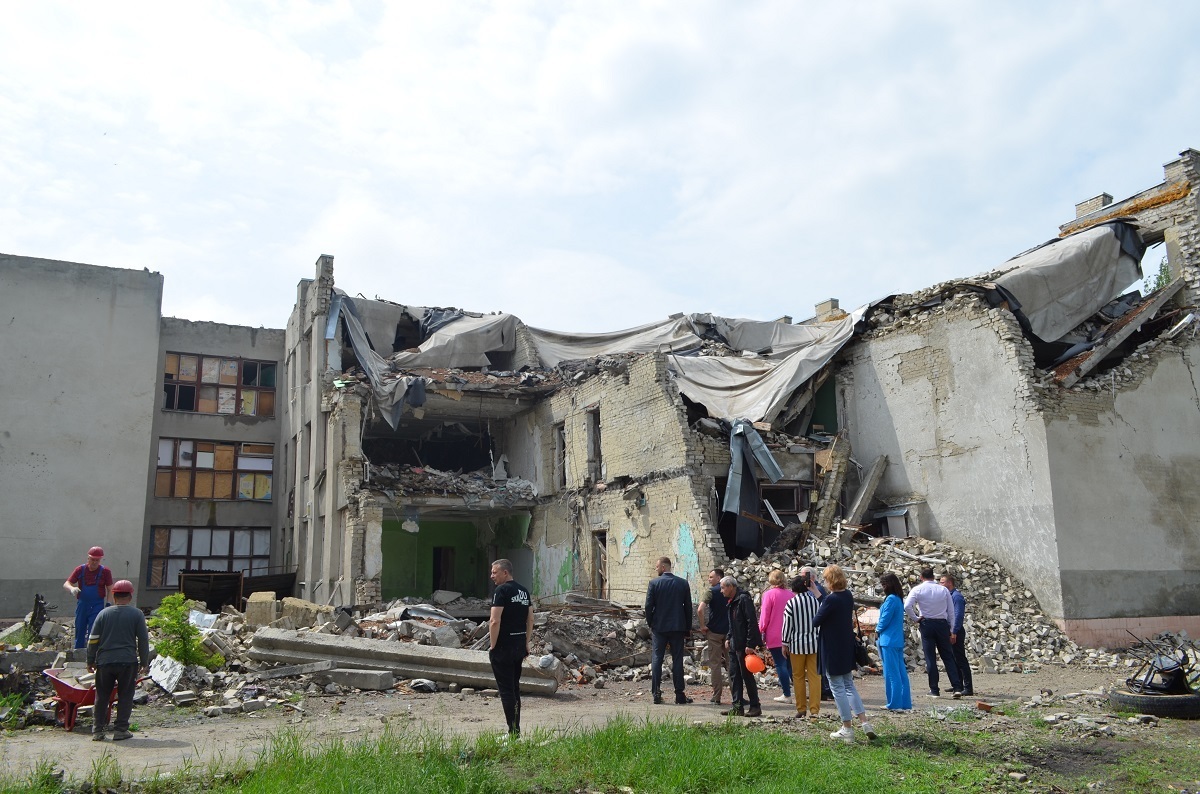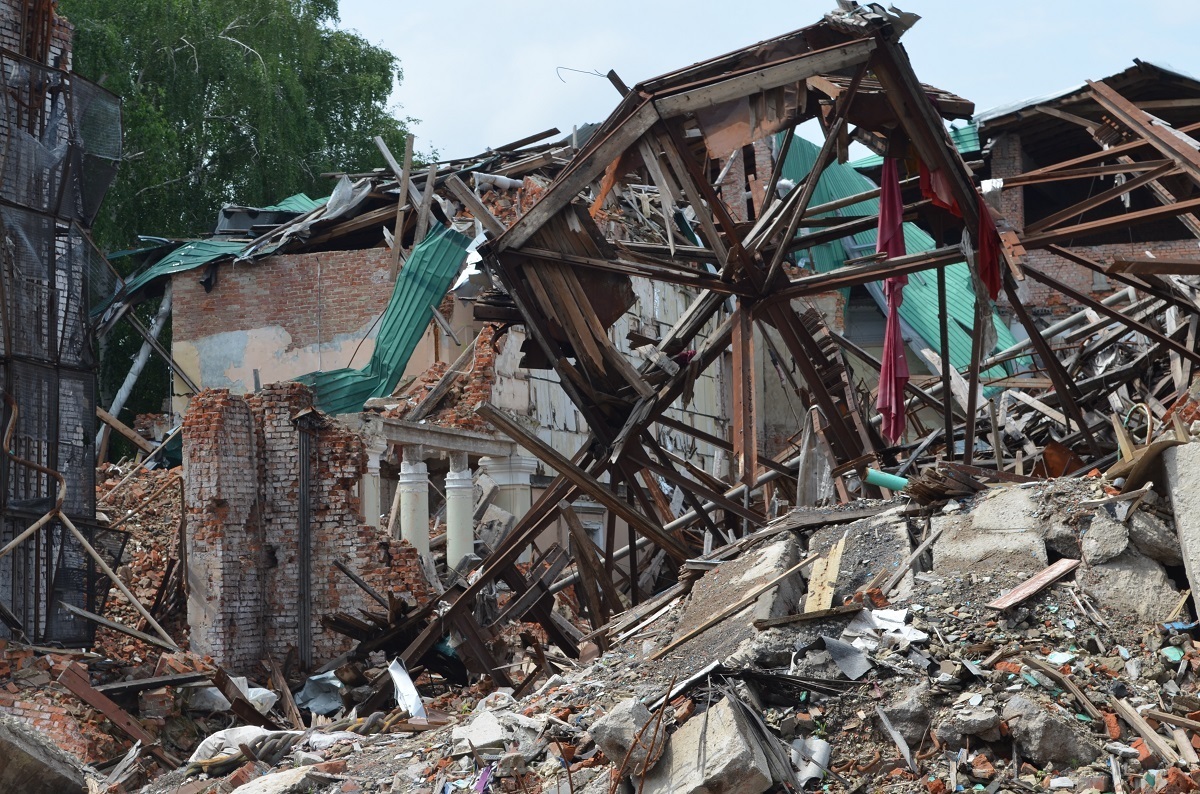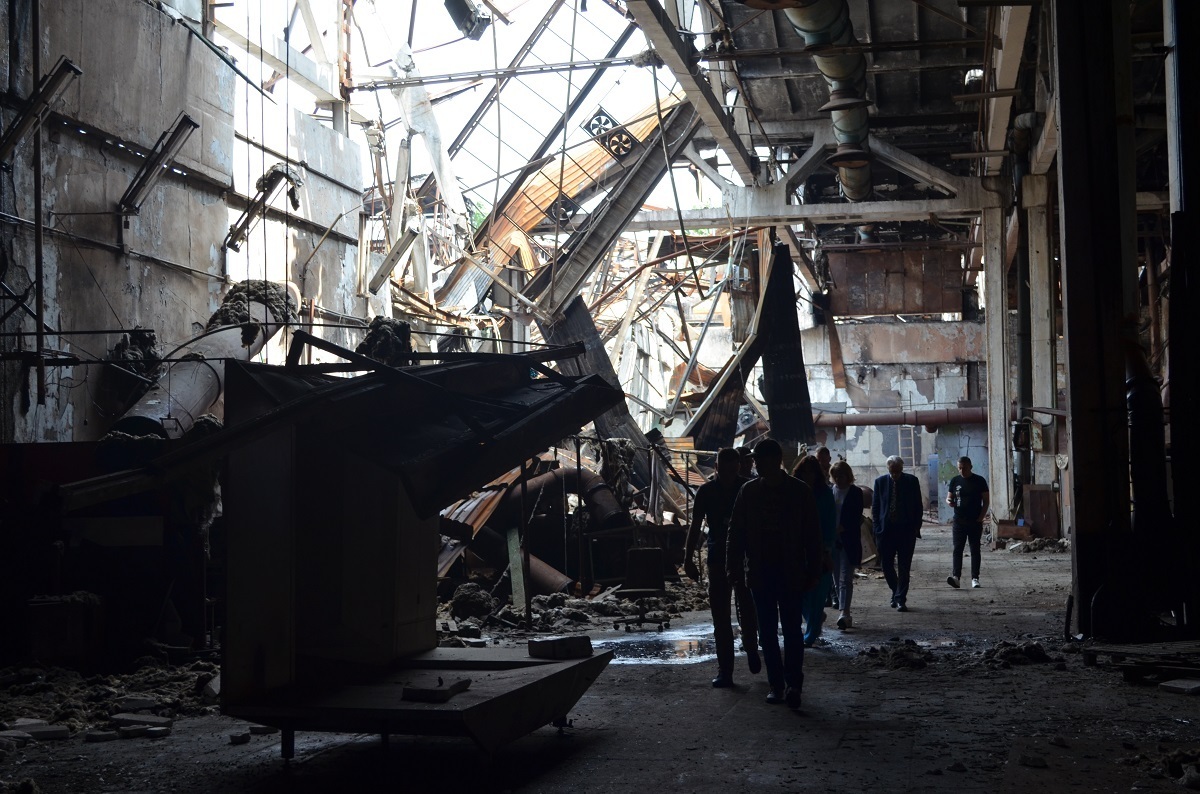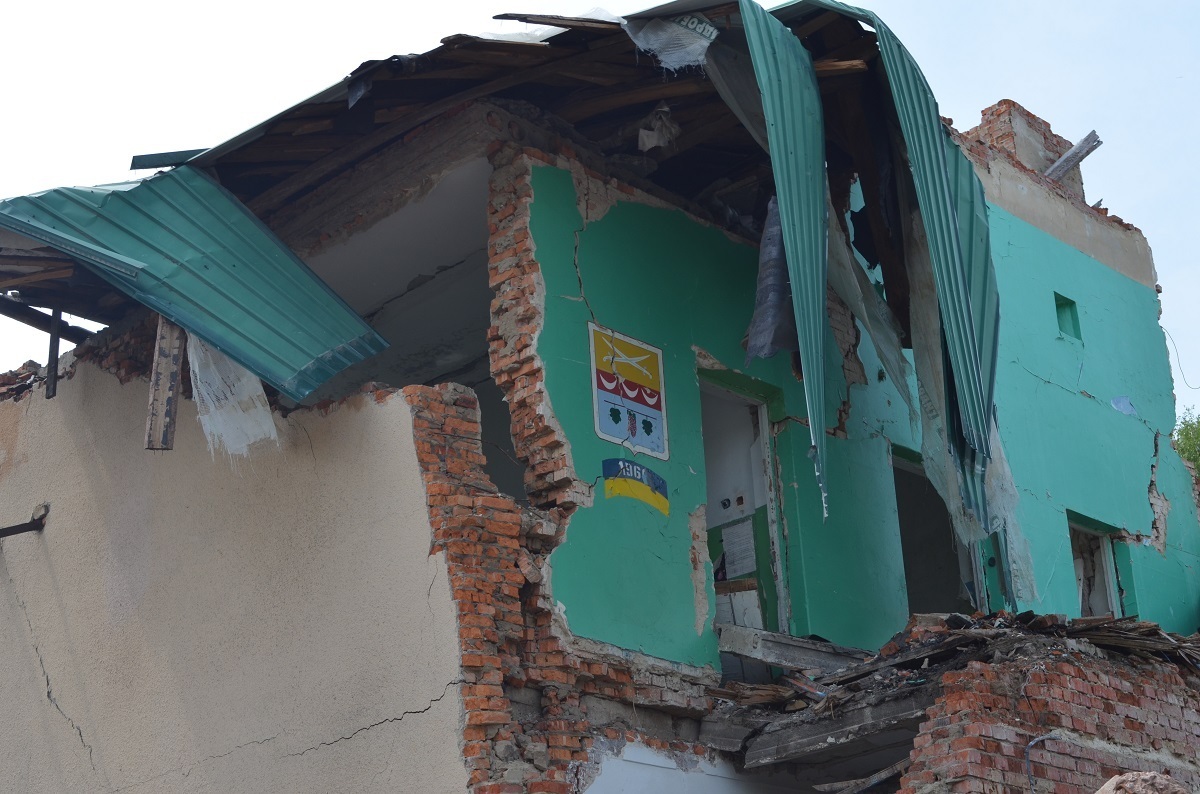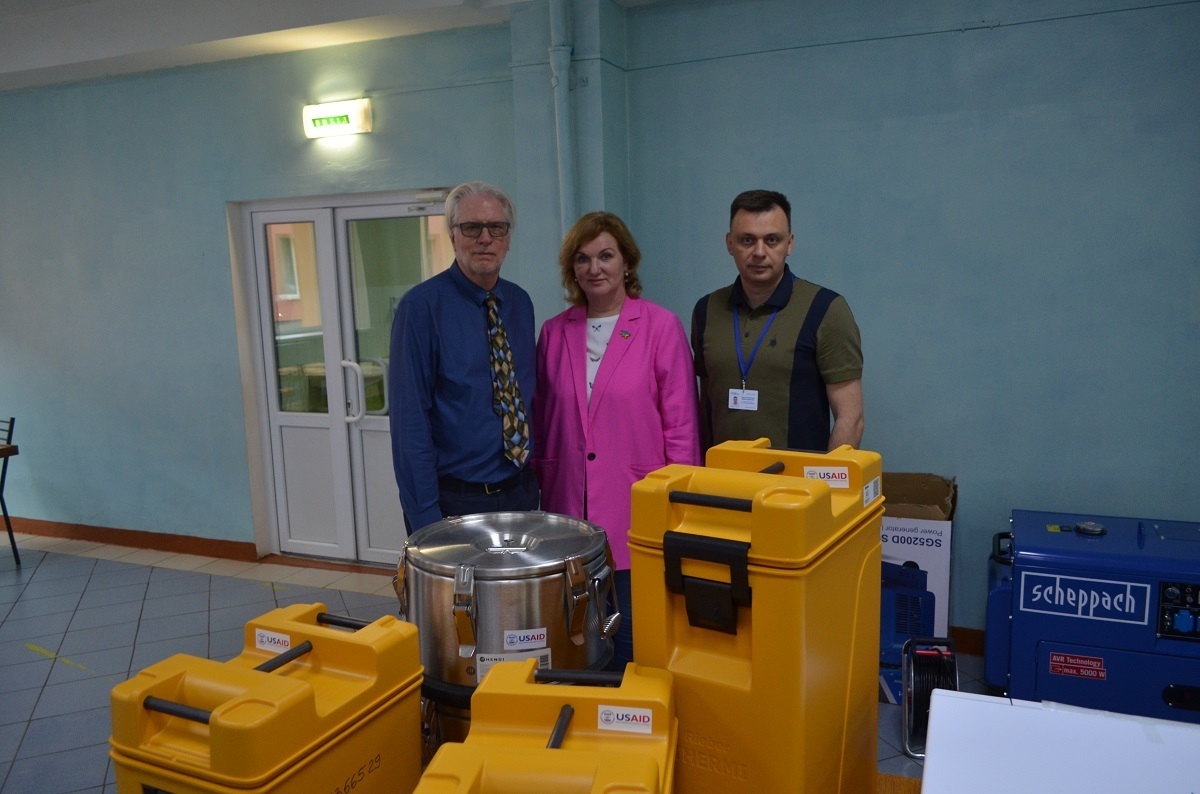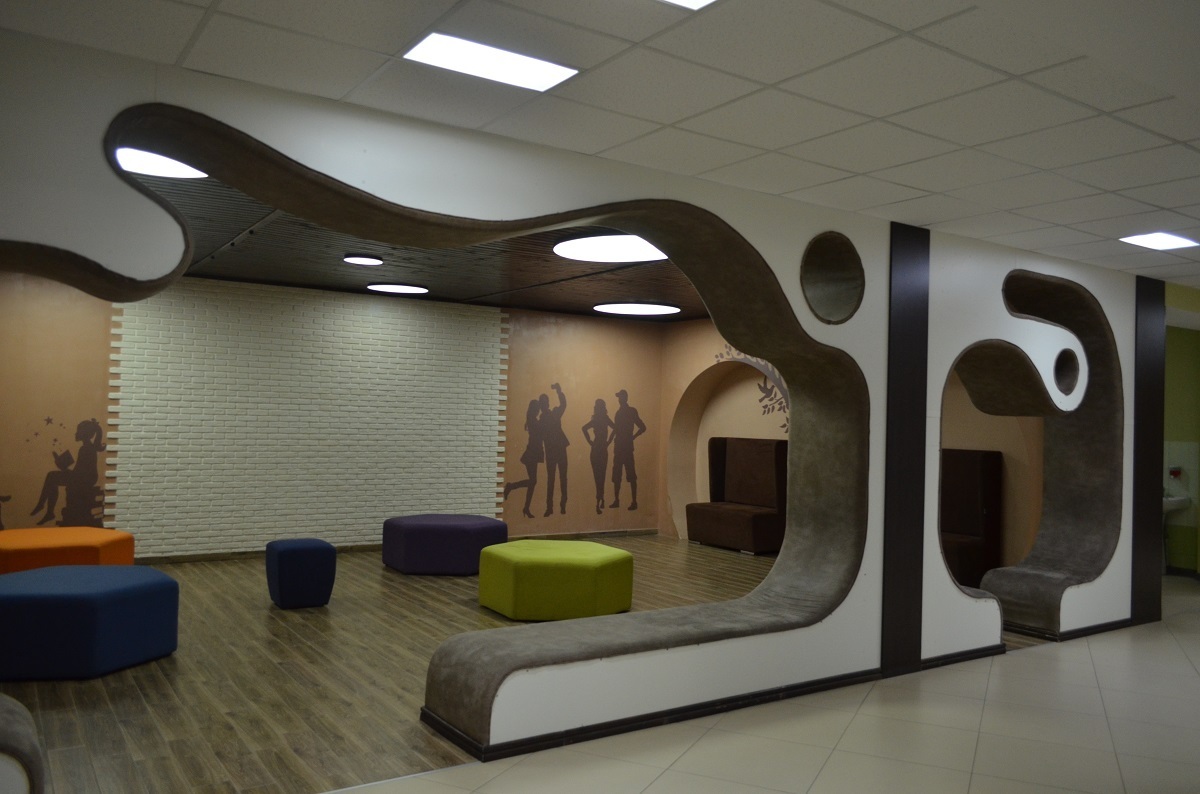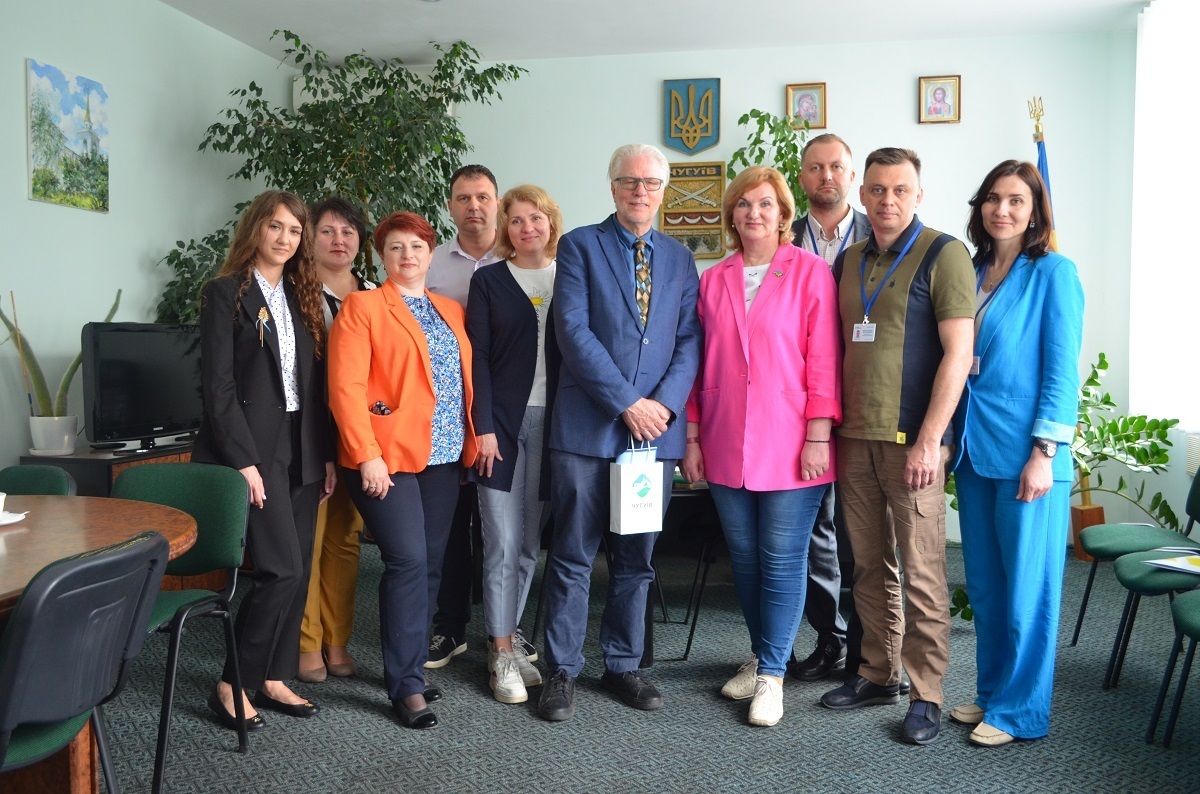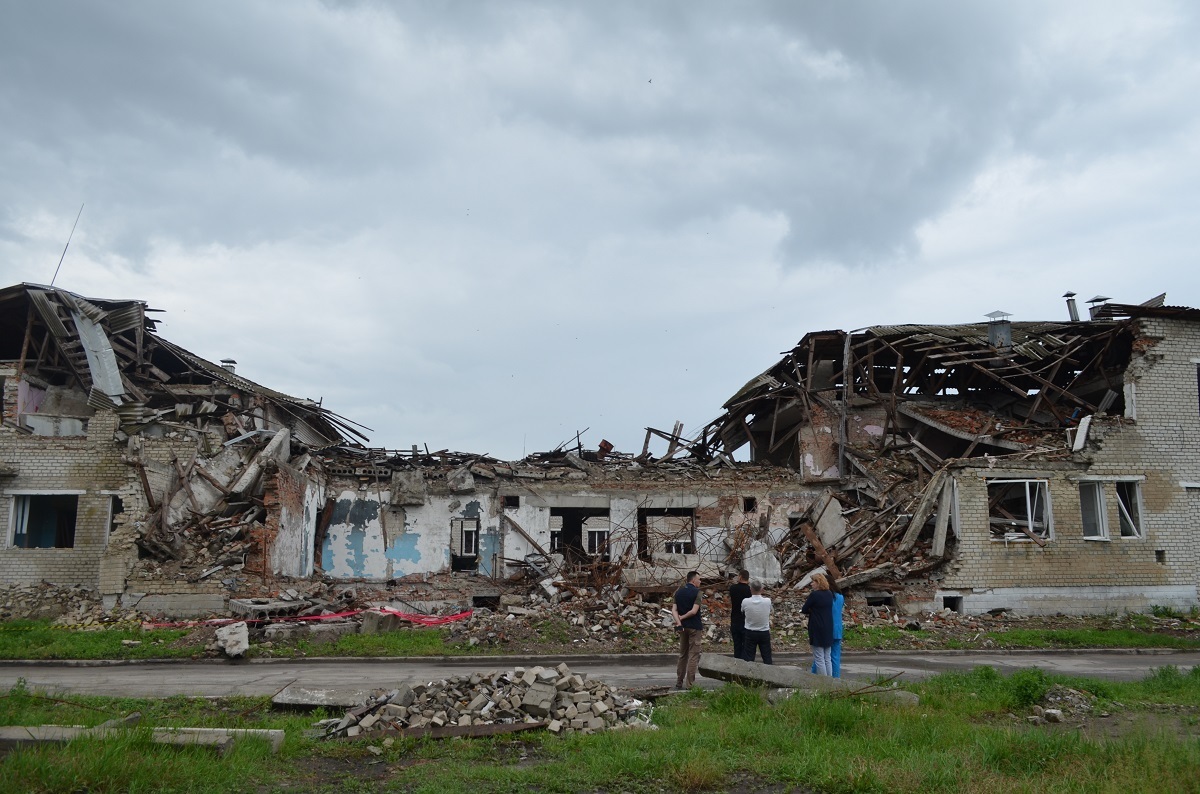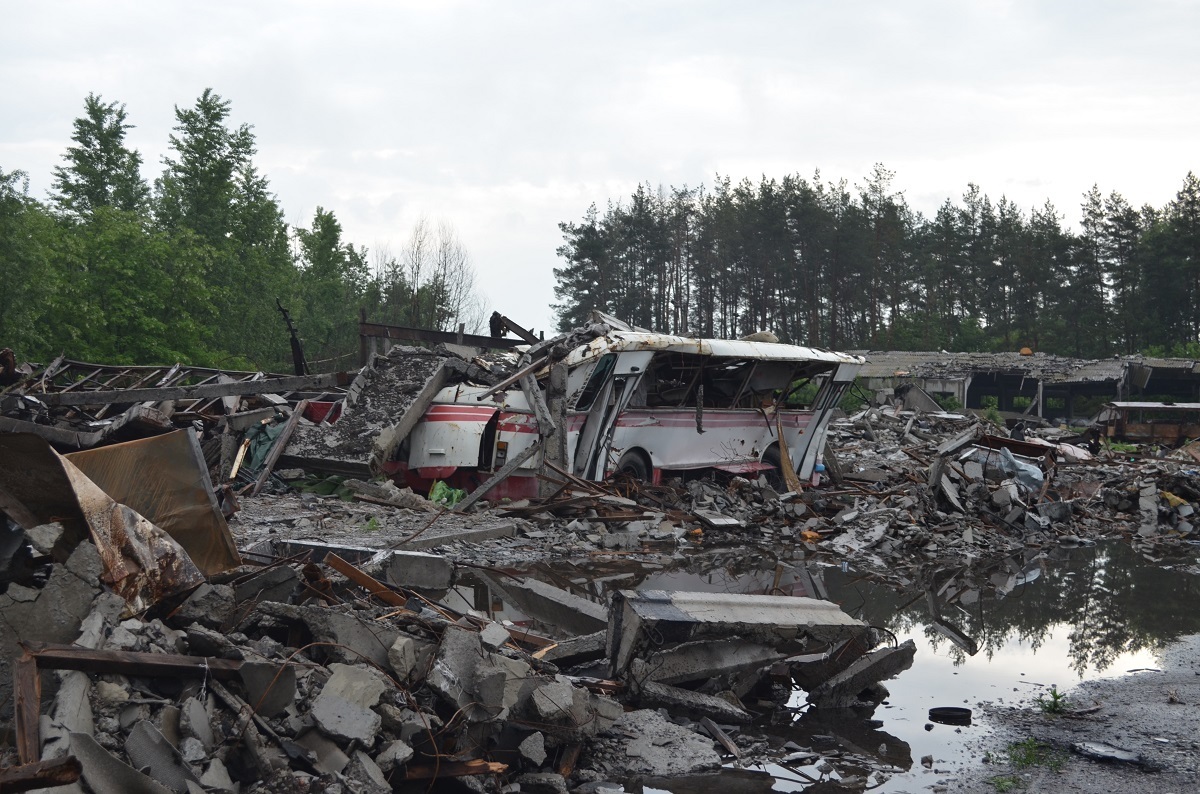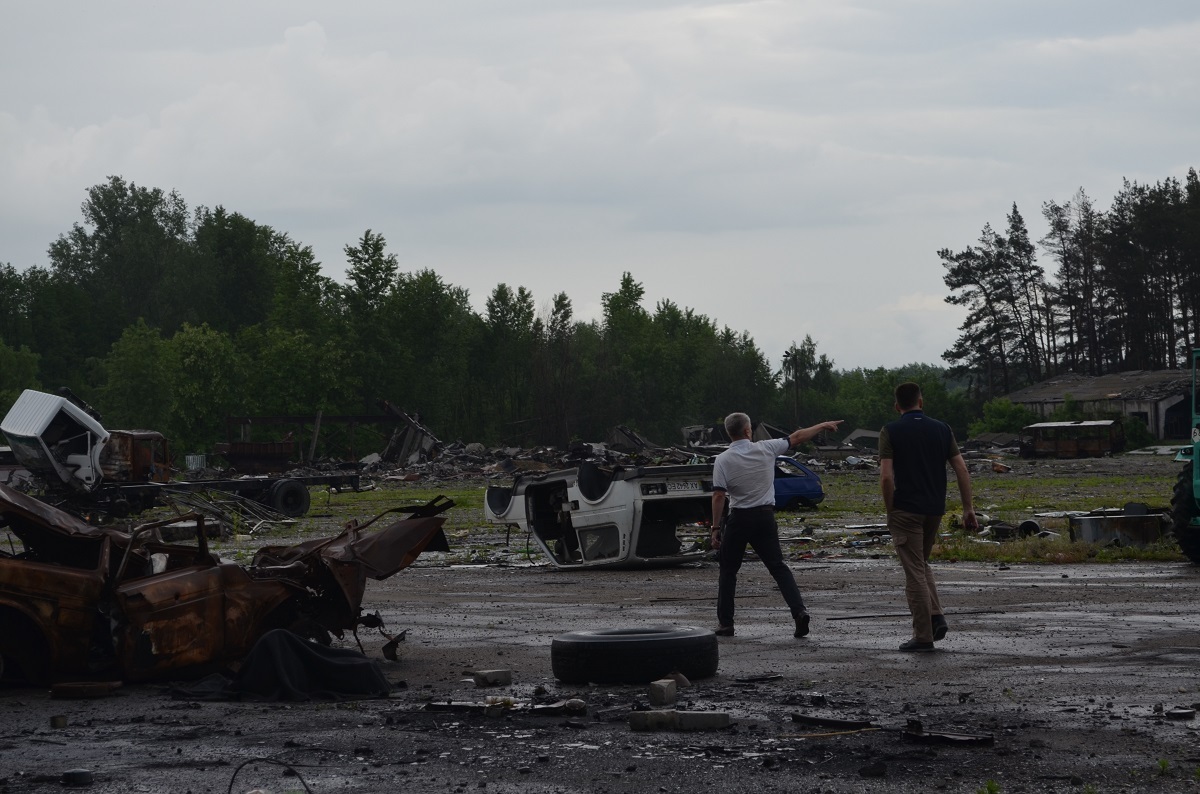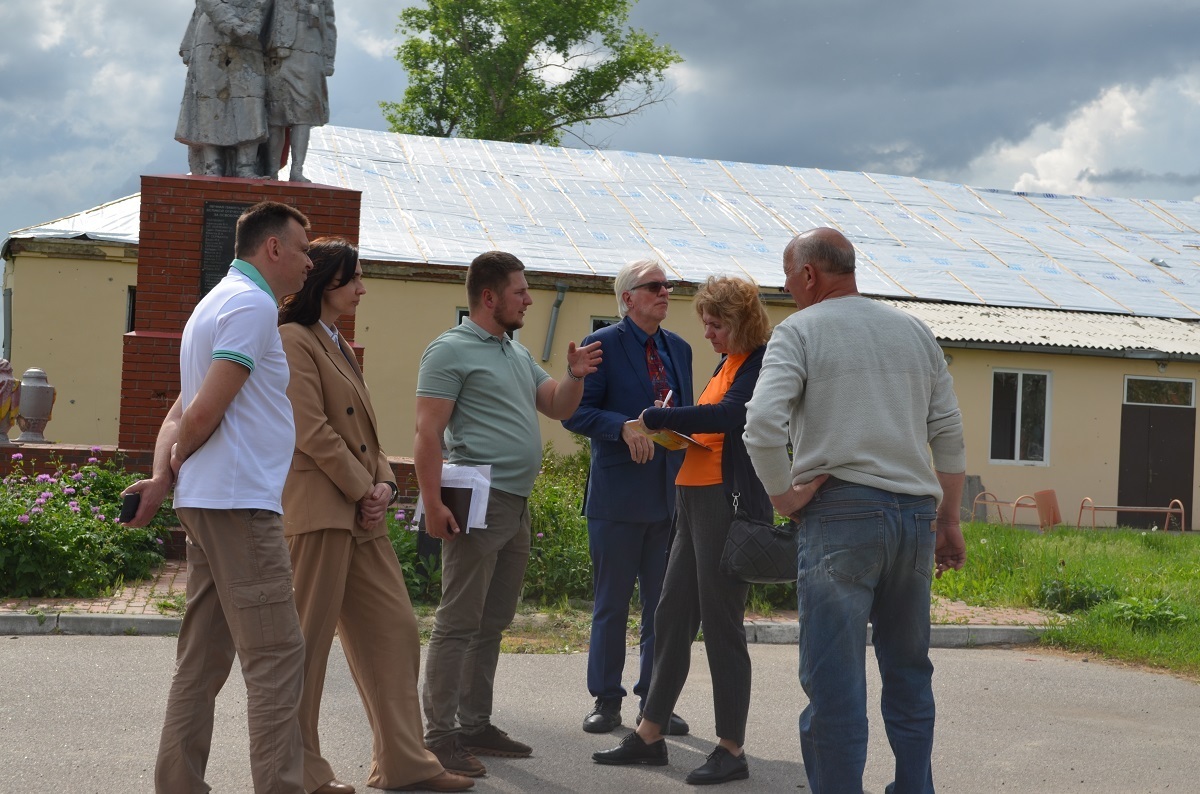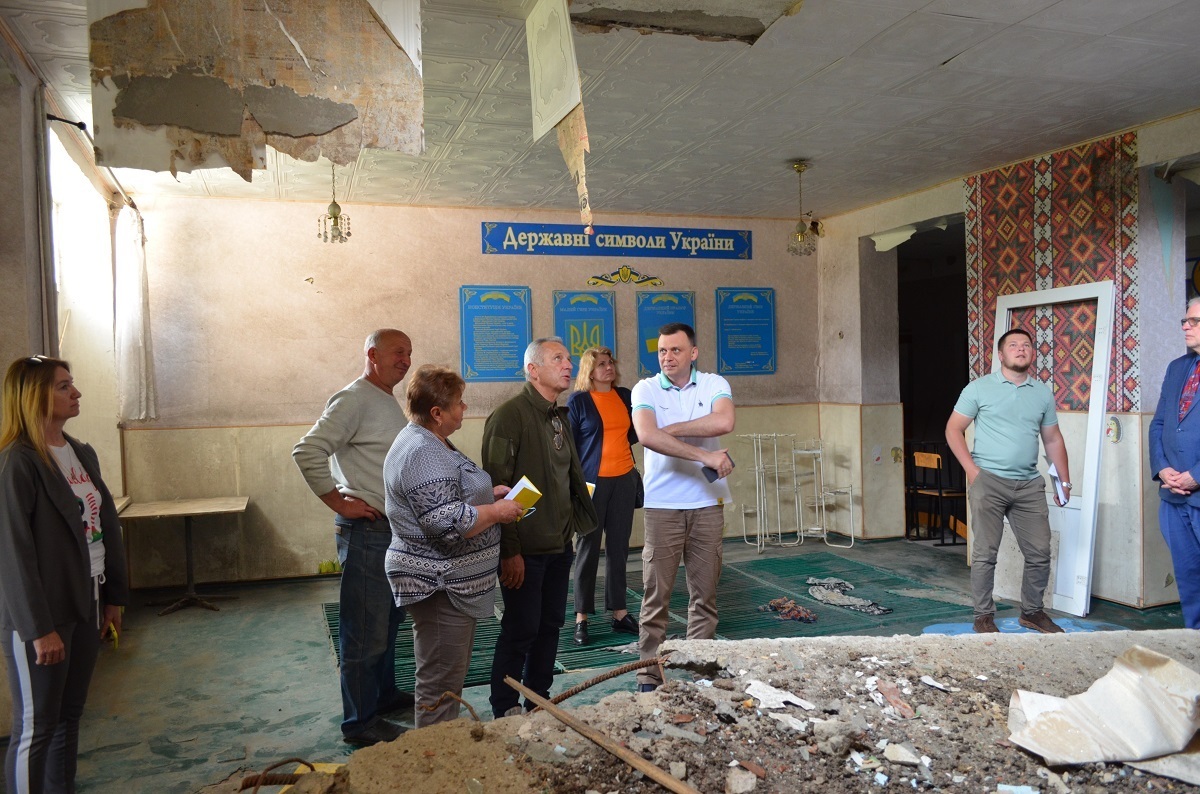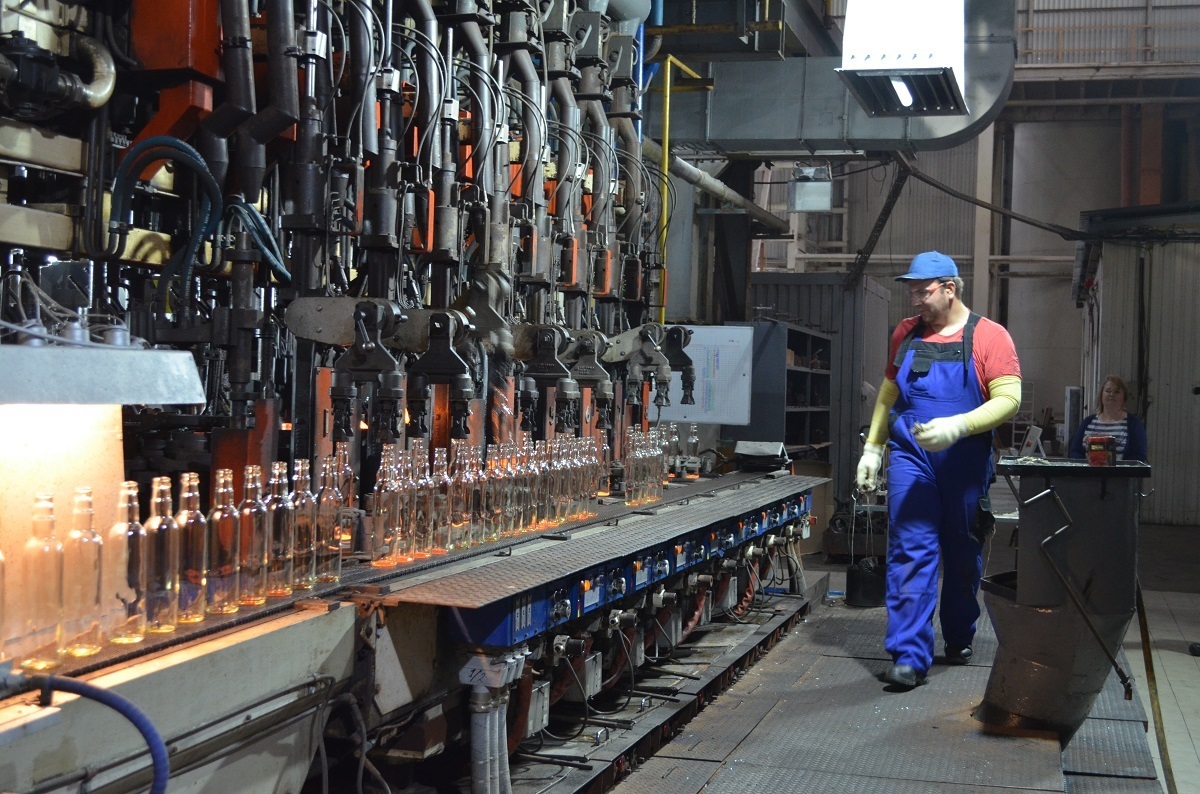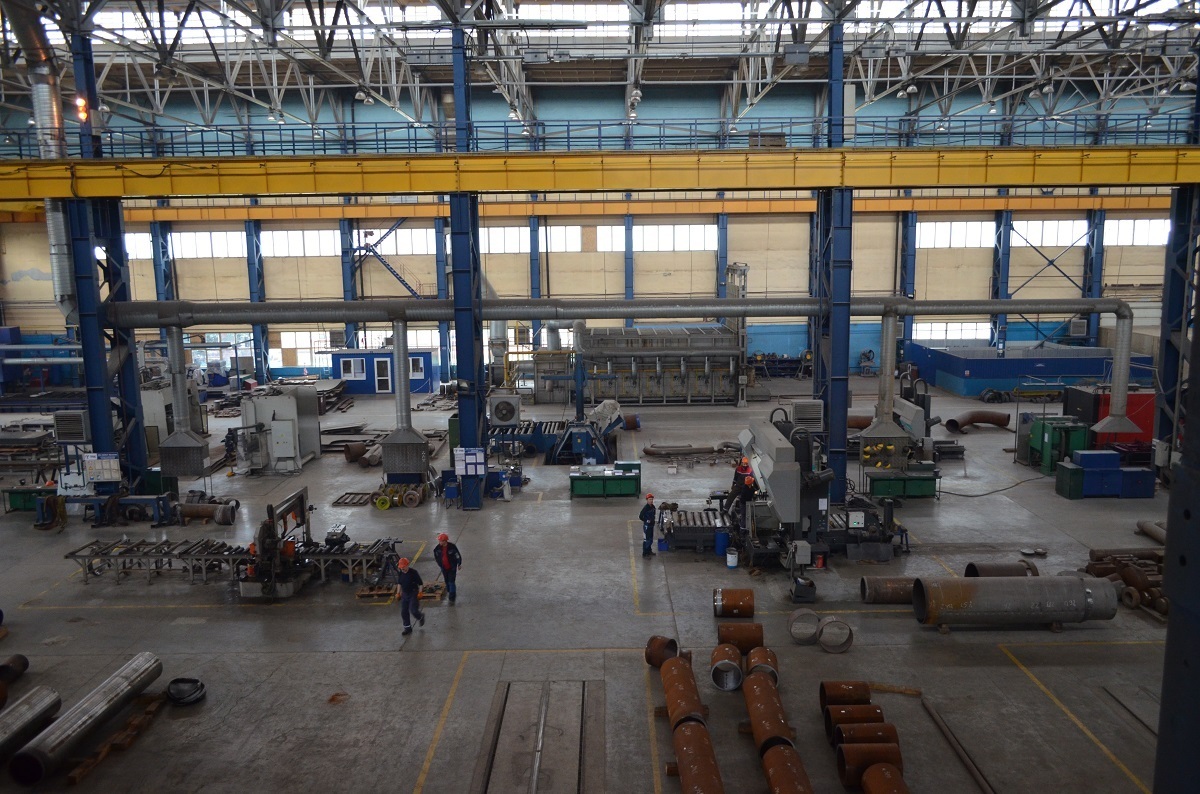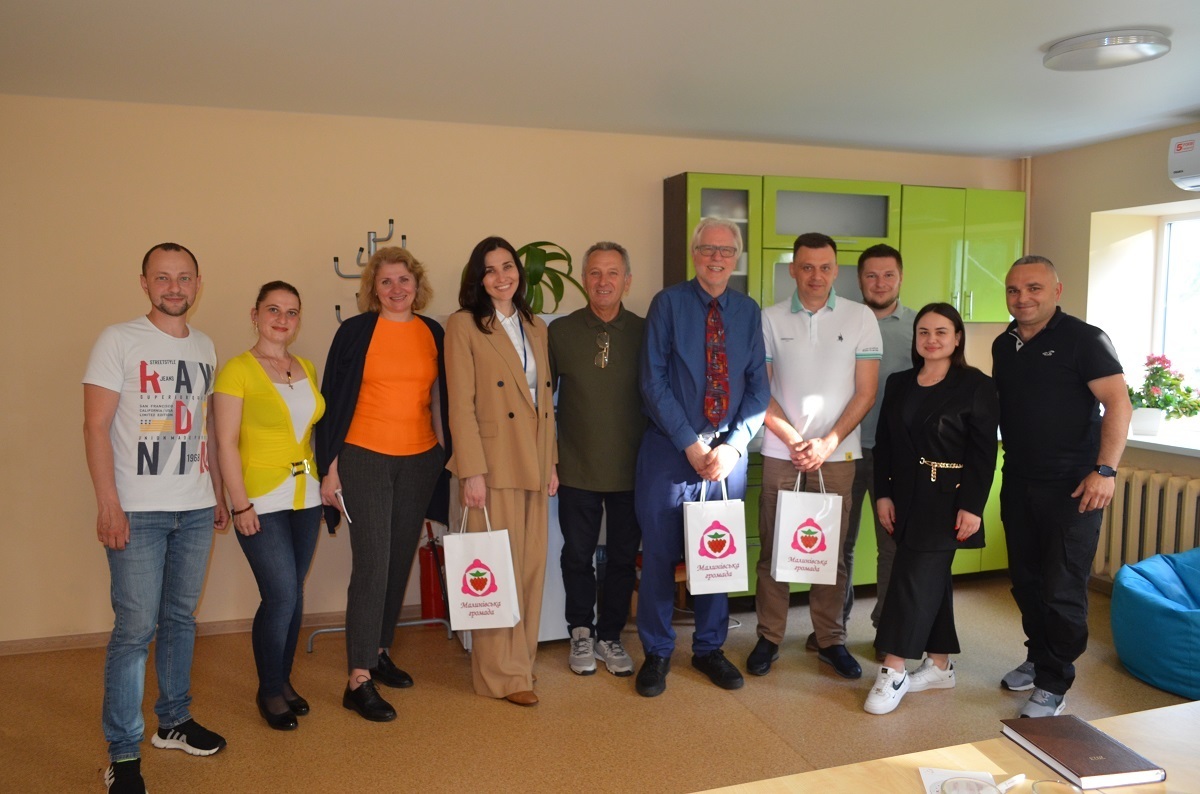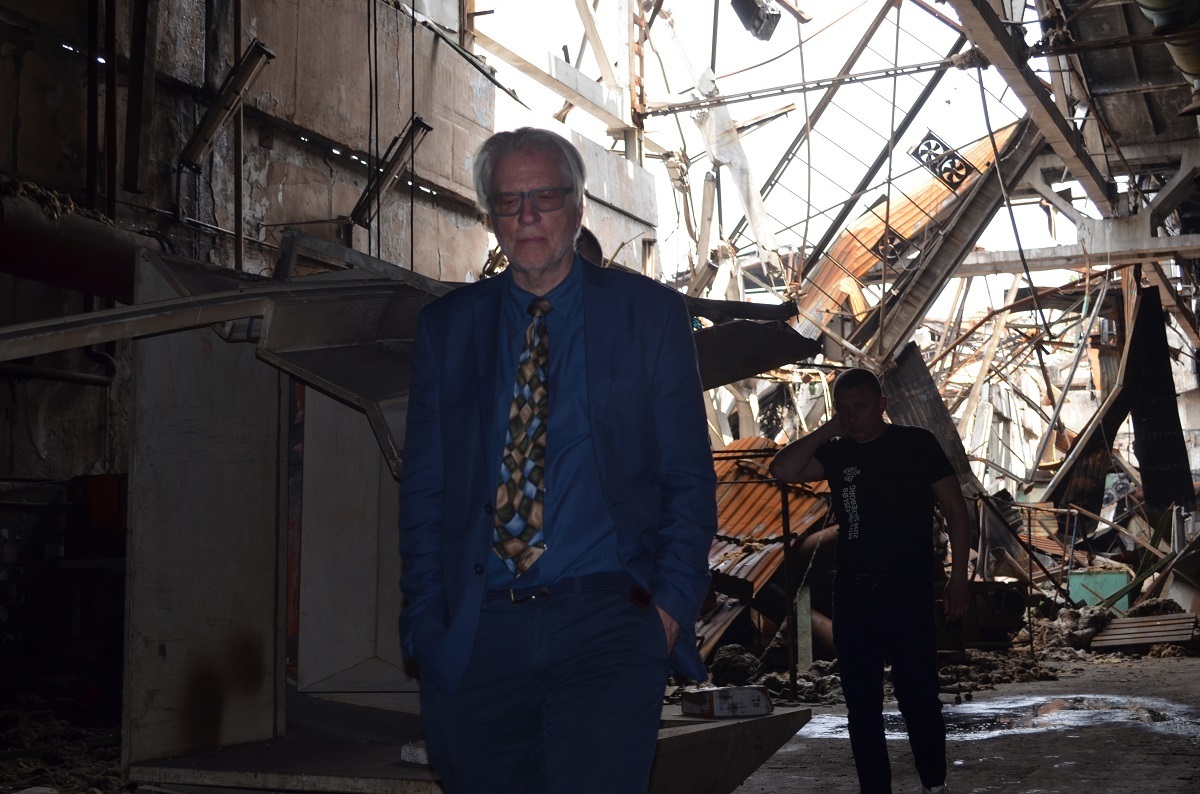Catastrophic destruction and millions in losses: USAID DOBRE to help communities in Kharkiv Oblast develop their Integrated Territory Recovery Programs
Territorial communities in Kharkiv Oblast suffered serious destruction and damage during the war. The USAID DOBRE has decided to assist twelve communities in Kharkiv Oblast. Six partner communities will receive training and advisory assistance to restore the full functioning of their local governments and will jointly implement projects that will strengthen their capacities. In 2023, six more communities will receive emergency assistance to overcome the consequences of the war. What are the challenges that the communities of Kharkiv Oblast have been facing today? What kind of assistance do these territories need? And how do they plan to cooperate with the USAID DOBRE Program? Chuhuivska, Balakliiska, and Malynivska territorial communities of Kharkiv Oblast were visited by the USAID DOBRE Chief of Party Brian Kemple, Deputy Chief of Party Maksym Burdavitsyn, Senior Regional Manager Andriy Nahorny, and Program Specialist Kateryna Shepty.
Chuhuivska territorial community: friends in need are friends indeed
From the first days of the war until September 2022, Chuhuivska territorial community suffered terrible shelling. Thirty-eight civilians got killed. The material damage is estimated at hundreds of millions of hryvnias. There are 728 private houses and 90 multi-story buildings destroyed or damaged. Two schools have been completely wiped out, while 23 educational institutions have suffered significant damage. Two cultural centers and 13 critical infrastructure facilities also ceased to exist.
Representatives of the USAID DOBRE Program saw with their own eyes the terrible destruction that Chuhuiv community had experienced. In particular, the delegation visited the Klugino-Bashkyrivka neighborhood, where the rocket attacks left no stone unturned from the local school that used to have more than 300 students. This educational institution was not only a place of study for students, but also a center for extra-curricular education: the youth hub was operating here, interesting events took place, where children were engaged in various clubs and reached the peaks of mastery in an exemplary vocal group. According to preliminary estimations, it will take 400 million hryvnias to rebuild the school. Next to the school, the House of Culture and the apartment building were destroyed. The ruins contrast with the surroundings. The neighborhood is in a highly picturesque corner of Chuhuiv community, surrounded by the pine forest.
Representatives of the USAID DOBRE Program also visited another center of creativity, the House of Culture in downtown Chuhuiv, which was completely destroyed in July of the previous year. The missile strike killed three community members taking shelter in the building at the time. Unfortunately, restoration of this structure is impossible, and the community is seeking options for using this land plot.
The scale of destruction and damage at one of the community's industrial facilities, the Chuhuiv Fuel Equipment Plant, was impressive. The powerful solar power plant that used to be on the roof was utterly destroyed.
At the same time, Chuhuiv community is starting to recover slowly. For example, two five-story buildings in the Aviatoriv neighborhood damaged on the first day of the full-scale invasion are being rebuilt at the expense of the regional and community budgets.
The USAID DOBRE representatives also inspected the Point of Invincibility, set up in the basement of the local lyceum school. The construction work is underway: the shelter will soon have a powerful exhaust hood, showers, and restrooms.
The USAID DOBRE provided the necessary equipment for this Point of Invincibility as part of its Emergency Response Project: mobile field kitchens, supplies for providing non-disruptive power, and thermo-containers for hot liquid food and drink.
"Friends are made when it's hard. Our American partners supported us in the most difficult period. We started our cooperation with the Program last year and are grateful for their help in setting up the Points of Invincibility, which provide proper conditions to our residents in emergency circumstances. Today, with the USAID DOBRE experts, we have been working on developing the Integrated Territory Restoration Program, as Chuhuivska community suffered significant damage during the war. By August 2023, we will have an official document. Since many industrial facilities were damaged and have not resumed their operations, the community's economic development is also crucial to us. The local economic development project, which we are planning to implement together with the USAID DOBRE Program, will help create new jobs. We are grateful for the professional advisory support and experience you are sharing with us," said Halyna Minaieva, Head of the Chuhuiv Military Administration.
Balakliiska territorial community: If there are jobs and housing - people will return home
For six months (from March 02 to September 08, 2022), Balakliiska territorial community had been under Russian occupation. During this time, the rocket attacks destroyed or damaged more than 3,400 private houses, more than 200 multi-story buildings, 15 schools, six kindergartens, public infrastructure facilities, and health care facilities. Much of the territory remains mined. The community has lost civilians. The area had no electricity, water, or gas supply for a long time.
At the time of the occupation, more than 10 thousand people remained in the community, while before the war, 44 thousand citizens lived here. People are returning to their native community, and now the number of residents is about 30 thousand. In this situation, the stable operation of utility companies is absolutely crucial.
Representatives of the USAID DOBRE Program learned about the work of the local water supply plant and, in particular, the sewage pumping station. On September 8, 2022, the station came under the rocket fire, killing three employees at the workplace. According to Mykola Panasenko, Acting Director of the local water supply plant, the shelling could have led to a real environmental disaster. Colleagues from Lutsk and Brovary came to the rescue, promptly delivering pumps and thus helping to restore the station's full operation. It is this facility that the USAID DOBRE Program will soon provide a high-level power generator in case of emergencies.
It was difficult to visit the destroyed lyceum school in the village of Verbivka in Balakliiska community. It was the largest suburban educational institution with more than 300 students. Most of the students now study at their homes remotely. If you peek inside the building through its shattered windows, you can see the modern renovation, furniture, and cozy classrooms. Verbivka children play soccer on the artificial turf field next to the school. They firmly believe they will see their school rebuilt.
"Balakliiska territorial community is gradually recovering. We have the center for providing administrative services, the department for social care, healthcare facilities, banking institutions, and communal utility services. However, the staff of our communal entities are left without equipment, which, unfortunately, was either burned or stolen by the occupiers. We expect the USAID DOBRE Program to provide us with a modern vehicle for the communal utility services sector as part of the Emergency Response Project, which will help us restore and maintain the community's infrastructure. One of the main challenges for the community is the lack of jobs and housing. The businesses that had operated here before the full-scale invasion were damaged or destroyed. Many agricultural lands remain mined. And we understand that if we fail to create jobs in the community, people will not return to us. That is why we consider it extremely important to cooperate with the USAID DOBRE Program under its local economic development project, which I hope will help us strengthen our economic capacities. We have also already started working with USAID DOBRE on developing the Integrated Territory Restoration Program and look forward to the support of both international donors and the state," said Vitaliy Karabanov, Head of the Balakliya Military Administration.
Malynivska territorial community: cooperation will be fruitful
Since February 24 to September 8, 2022, Malynivska territorial community was under the constant rocket and artillery attacks. About 400 houses and 27 infrastructure facilities were damaged in the community. Thirteen citizens got killed in the shelling.
One of the most affected villages in the community, Mospanove, was occupied for some time. Eventually, the frontline passed through the settlement. The village residents were actually cut off from utility services. There was no water, electricity, or gas service provision. By the way, the electricity was only turned on a few weeks ago. Sixty-eight residents were under occupation. Ivan Shaulskyi, Starosta of the Village, who had spent the time in captivity, told the USAID DOBRE representatives that the rocket attacks had damaged the school, the House of Culture, and the Village Council, also destroying 72 private homes. The farm cannot work properly because the fields are full of mines. As part of the Emergency Response Project, the USAID DOBRE provided a generator and water pumps to this village to help restore the full water supply in the settlement.
The community is interested in restoring the operation of large industrial enterprises on its territory. If the business works, the budget will receive funds. Representatives of the USAID DOBRE Program met with the management of the Malynivka Glassworks, which produces bottles, jars, and vials of various shapes.
They also visited the local pipe plant that specializes in piping systems for nuclear power plants, petrochemical, and oil and gas industries. These enterprises suffered millions in material damage from the missile strikes and are now looking for ways to restore production. In turn, the USAID DOBRE Program is interested in supporting local businesses and, together with the community, is already developing a project that will help strengthen the local economy development.
It is the second time Malynivska territorial community has become a partner of the USAID DOBRE Program.
In the first phase of cooperation, the local government implemented many important projects with American partners: reconstructed the local park, established the youth hub, and arranged the recreation area in the village of Stara Hnylytsia. In addition, as part of the project to improve household waste management services, the USAID DOBRE delivered a garbage truck, and the community set up sites for waste sorting. The equipment is still working for people today.
"Together with the USAID DOBRE Program, we implemented many development projects before the war. The Program's specialists and experts advised, trained, and consulted our employees and civil society. We are glad that the cooperation continues after the de-occupation and full-scale invasion. The USAID DOBRE Program did not leave us in the most difficult times: as part of the Emergency Response support, we received the necessary tools and equipment for local communal enterprises. I am convinced: our cooperation will be fruitful, which gives us confidence," emphasized Mykola Semerianov, Head of the Malynivka Military Administration.
The USAID DOBRE Program will help Kharkiv Oblast territorial communities develop their Integrated Territory Recovery Programs
Brian Kemple, Chief of Party, USAID DOBRE Program:
"Of course, being in Ukraine and having the experience of implementing the USAID DOBRE Program here, we understood that the war gravely affected the communities. But it's one thing to hear about it and another thing to see it with your own eyes.
In the Kharkiv Oblast, I encountered directly the severe consequences of the war. The Chernihiv Oblast communities we have recently visited have also suffered, but in the Kharkiv region, the destruction is extremely vast. It is obvious that the communities have suffered and that they face many challenges. Nevertheless, people and teams in the communities are positive. They are working to restore their territories. And the USAID DOBRE Program will undoubtedly help them in this."
Maksym Burdavitsyn, Deputy Chief of Party, USAID DOBRE:
"The communities of Kharkiv Oblast have suffered enormous destruction of private houses, schools, kindergartens, communal infrastructure, and private enterprises. Combining the efforts of central and local authorities and international partners is necessary to rebuild all this.
In this context, the USAID DOBRE Program is helping six communities in Kharkiv Oblast to develop Comprehensive Recovery Programs that will serve as a roadmap for priority steps. Chuhuiv, Malynivka, and Balakliya communities that we visited will receive such assistance.
Today, the Government of Ukraine and other government agencies realize that the reconstruction process cannot begin without the Recovery Program. That is why the USAID DOBRE experts have already developed sample documents and are practicing the methodology. However, the local authorities only, in consultation with the public, can decide how to restore their community. Developing an Integrated Territory Restoration Program is a complex process. Local government representatives must understand that restoring schools and kindergartens is not enough. If jobs are not created in the community, residents will not return home."

Tags:
war stories international support repair
Область:
Харківська областьГромади:
Балаклійська територіальна громада Малинівська територіальна громада Чугуївська територіальна громадаSource:
DOBRE
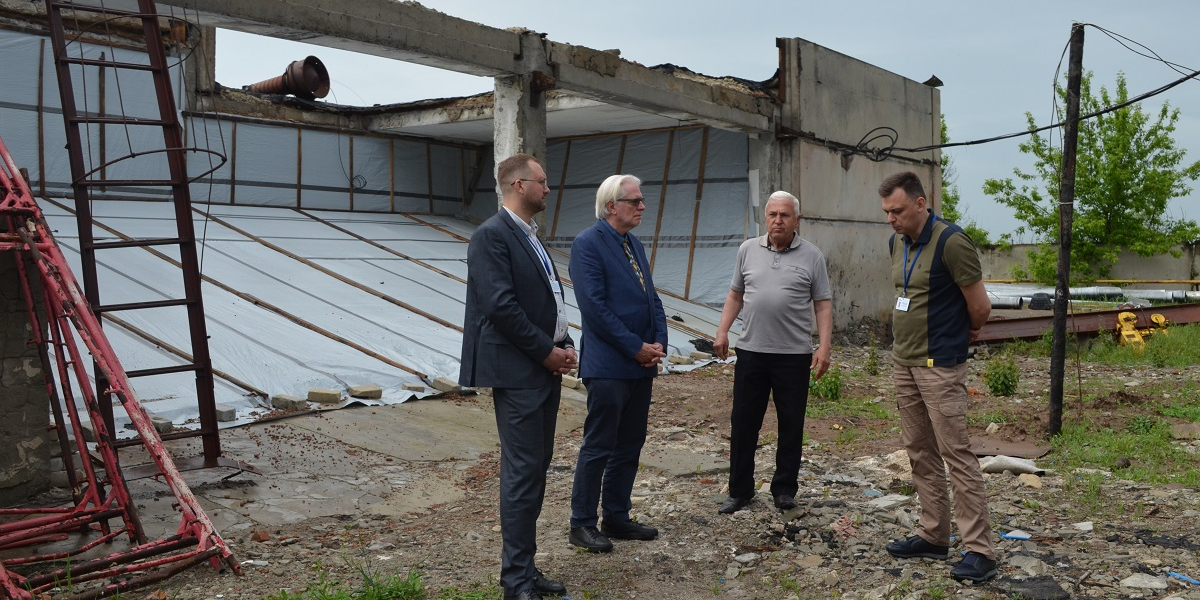
21 November 2025
Анонс вебінару: «Перетворення комунального...
Всеукраїнська асоціація органів місцевого самоврядування «Асоціація об’єднаних територіальних громад» у партнерстві...
21 November 2025
Government approves list and requirements for...
The Cabinet of Ministers has approved a list of indicators and requirements to classify Ukrainian communities into...
21 November 2025
Стійкість починається в громадах, - Олексій Кулеба на Національному форумі
Стійкість починається в громадах, - Олексій...
На тематичних панелях учасники обговорили результати ключових реформ місцевого самоврядування та регіонального...
20 November 2025
Franconville and Slavutych – a New French–Ukrainian Partnership
Franconville and Slavutych – a New...
On November 7, 2025, the Ukrainian city of Slavutych and the French city of Franconville officially became partner...
